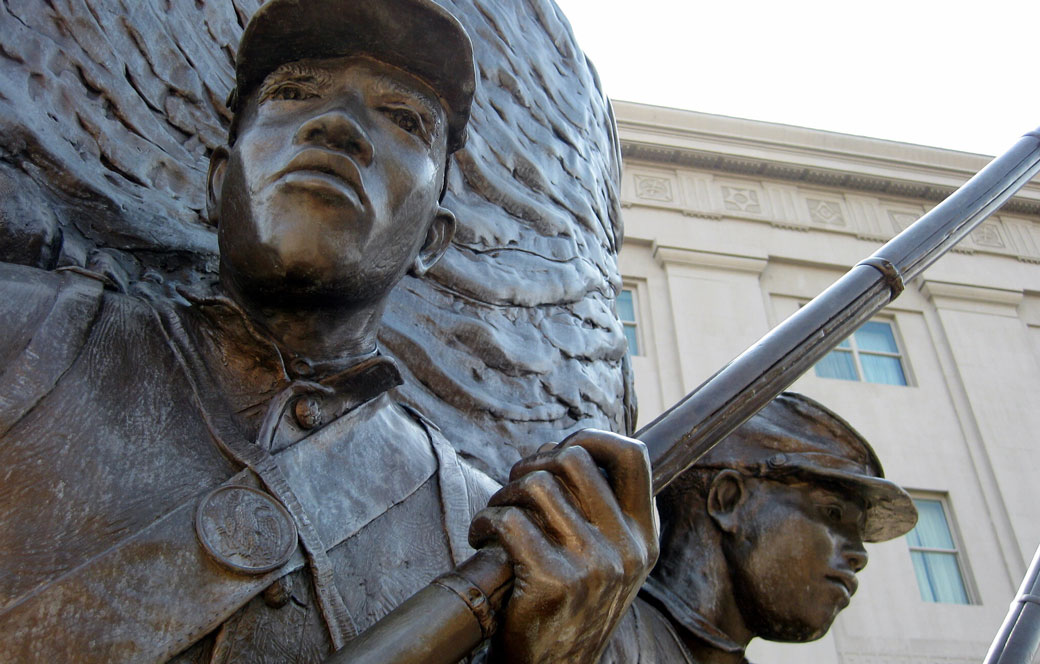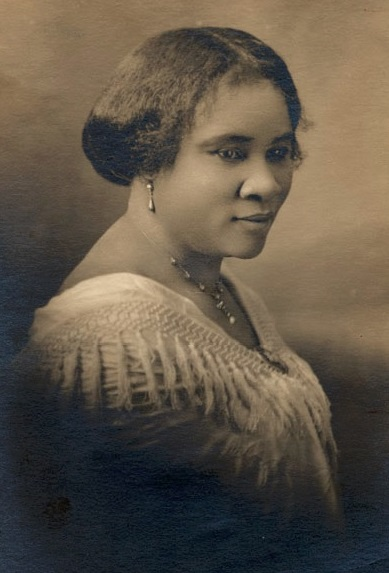Honoring Black American History on HearHere

Throughout the month of February, we celebrate the accomplishments of Black Americans and their many contributions to our nation’s history. Along the roads and highways of the United States are many signs that mark the ingenuity and heroism of Black men and women who dedicated their lives to the proposition of making a more perfect union. Despite more than four centuries of oppression, discrimination, segregation, and racially motivated violence on this continent, these great citizens of the republic forged a pathway of remarkable achievements from the bondage of slavery through the most prestigious halls of social, economic, and political power. As we travel from one end of the country to the other, the enduring narratives of Black History unfold at every turn.
It was on the backroads of America that Harriot Tubman led escaped slaves along the Underground Railroad to freedom. Through this network of secret routes and safe houses, she emancipated hundreds of enslaved people and instructed dozens of others on how to escape on their own. When the Civil War broke out in 1861, Harriet found new ways to fight slavery, working as a nurse, cook, laundress, and even a Union spy.
During the War, she was the first woman to lead an armed expedition to conduct the raid at Combahee Ferry, which liberated more than 700 slaves. After the war, she retired to a home in Auburn, New York where she lived to the age of 91. Listen to her story here.
Many slaves who escaped their captivity in the South returned in the War to fight for the freedom of others. The African American Civil War Museum in Washington D.C. commemorates the Black men who served as volunteers in regiments known collectively as the United States Colored Troops. Here visitors are greeted by the “Spirit of Freedom Memorial” created by sculptor Ed Hamilton. The sculpture depicts three infantrymen and one sailor, with the “spirit of freedom” watching over them. “Without the military help of the Black freeman,” Abraham Lincoln proclaimed in 1865, “the war against the South could not have been won.” Behind the sculpture are etched the names of more than 200,000 soldiers and sailors -- including 7,000 white officers who commanded USCT troops and 2,000 Hispanic soldiers who fought alongside their Black compatriots. Learn more about the sculpture here.
 Several figures in the generation of Black Americans that followed emancipation rose to prominence. Born a free woman two years after the war in Delta, Louisiana in 1867, Sarah Breedlove emerged as America’s first female self-made millionaire. Known as Madam C.J. Walker she created a business selling hair care and beauty products specifically for the Black community. By 1917, Walker and her company had trained 20,000 female sales agents who visited homes around the US and the Caribbean
Several figures in the generation of Black Americans that followed emancipation rose to prominence. Born a free woman two years after the war in Delta, Louisiana in 1867, Sarah Breedlove emerged as America’s first female self-made millionaire. Known as Madam C.J. Walker she created a business selling hair care and beauty products specifically for the Black community. By 1917, Walker and her company had trained 20,000 female sales agents who visited homes around the US and the Caribbean
offering Walker’s products that were packaged in tin containers carrying Madam C.J.’s image on them. Sarah showed Black women how to budget, build their own businesses, and become financially independent. She even organized her agents into what became the National Beauty Culturists and Benevolent Association of Madam C. J. Walker Agents; one of America’s first annual national gatherings of female entrepreneurs. Listen to the story about Sarah here.
The River Road African American Museum was found in 1994. Located in Donaldsonville, Louisiana it is housed in a restored cypress building that was once among more than 5,000 Rosenwald Schools. Here, with the financial support of Sears Roebuck president Julius Rosenwald, prominent educators such as Booker T. Washington stressed the importance of teaching Black students to become strong community leaders from 1917 and 1932. The Donaldsonville site is a Caribbean-style cottage featuring information that details the stories of plantation life, the Underground Railroad, and the Reconstruction era. The Museum’s collection of historic photographs, documents, and artifacts honor outstanding civic leaders, doctors, jazz musicians, and folk artists. Donaldsonville Mayor Pierre Caliste Landry was the first African American mayor of a US town. Landry, who grew up as a slave on a plantation across the river, was elected in 1868. He earned a law degree and served several terms in the Louisiana legislature. Listen to more of the story about Black Americans' struggles and achievements here.
Mile after mile the compelling narratives of Black leaders roll along the winding road of American history. On every point of the compass, there is another remarkable tale of inspiring triumph to be discovered. On HearHere, you can learn about the history of these black leaders every day. From February - through the whole year round - let’s embrace our common heritage of perseverance in the face of struggle to achieve greatness.